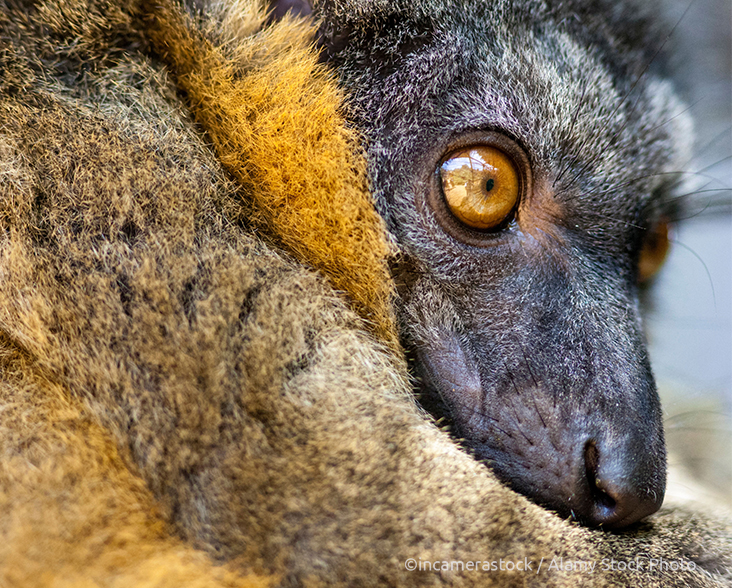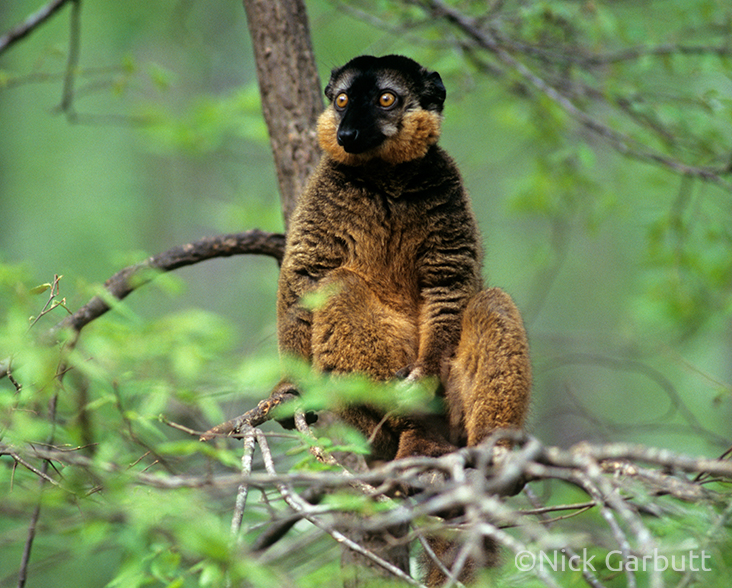Collared Brown Lemur
Species Data
Class: Mammalia
Order: Primates
Family: Lemuridae
Scientific Name: Eulemur collaris
IUCN Red List status: Endangered
DESCRIPTION
The Collared Brown Lemur is a medium sized lemur named for the collar of reddish-brown fur which surrounds its neck. While all Collared Brown Lemurs are generally brown, males and females vary in their secondary colouration. Males exhibit black fur around the head and tail, whilst females show a lighter grey. A dark stripe may also be seen on the backs of males.
BEHAVIOUR
Though fruit often makes up around 70% of the Collared Brown Lemur’s diet, this can vary according to season and habitat. Because fruit is so important in its diet, the species is a key disperser of seeds, and important to the natural regeneration of the forests it inhabits. It is primarily arboreal, very rarely coming down to the ground.
Living in troops of up to 22 individuals, the Collared Brown Lemur is active periodically during both day and night. Breeding between May and July, the species is unusual for a lemur in that both parents contribute to raising the young, which are often born singularly. Equally unusual for lemurs, there is no clear dominance hierarchy between males and females of Collared Brown Lemur troops, in contrast to closely related White-collared Lemurs, which live in female-dominated groups.


HABITAT
Endemic to Madagascar like all lemurs, the Collared Brown Lemur inhabits the trees of humid forests and coastal woodland in the south-east Atsimo-Atsinanana and Anosy regions. It only inhabits areas below 1,800 metres above sea level.
THREATS AND CONSERVATION
Slash-and-burn methods used to clear forest for agriculture, and the production of charcoal, threaten the Collared Brown Lemur’s habitat. The species’ population is thought to have declined by around 50% between 1996 and 2020 as a result. Many Collared Brown Lemurs have also been hunted for meat or the local pet trade. These threats have placed the Collared Brown Lemur under serious risk of extinction.
